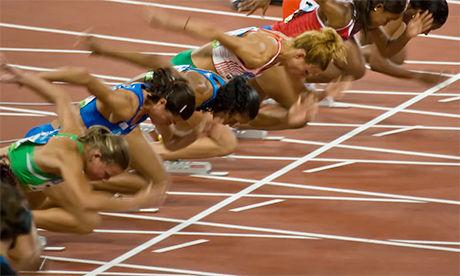The man who helped write guidelines on transgender players in women’s rugby says he hates that his work has created a platform for people to attack transgender people as cheats.
“That’s not the case,” says sports scientist Ross Tucker. “I wish that society would be accepting.”
The report was leaked a couple of weeks ago by The Guardian, which suggested World Rugby was considering changing its policy around male-to-female transgender players, potentially banning them from playing women’s rugby.
The policy change was based on the scientific report co-written by Tucker, which said, even after testosterone treatment, trans athletes retained a significant performance advantage over biological women – manifesting in “at least a 20-30 percent greater risk of injury when a female player is tackled by someone who has gone through male puberty”.
The proposed ban was predictably polarising: NZ Rugby immediately came out and said while it would seek feedback on the proposal, it wasn’t keen on a ban.
Wellington rugby player Alice Soper told RNZ’s Morning Report she would have no problem lining up against women who underwent male puberty, and described the proposal as “TERF-y”.
On today’s episode of The Detail, Emile Donovan speaks to Tucker about how he came to these conclusions, the physiological differences between men and women, and the extraordinary situation sports administrators find themselves in.
This is not a discussion about whether trans women should be able to play sport. That isn’t a question; sport is a human right.
This is about an intersection of competing values: of inclusion, safety, and fairness, in a situation where there isn’t a clear way to balance all three.
A fundamental question in this discussion is why sport is split along the lines of biological sex.
“[We split sport] within a sometimes arbitrary range, because if we didn’t do that, the smallest boxer would never win,” says Tucker. “The athlete with the most severe cerebral palsy would never have the opportunity to win that medal … and, similarly, those who are female and therefore physiologically different in their biology would have zero chance of winning those medals if they had to compete in an open category against males.
“The scientific, biological differences between men and women are so large, they would render women irrelevant in elite-level sport. Therefore, we protect a category of people who do not have the advantage in order for their sport to have the same meaning.
“Now, we can have a Usain Bolt, who won the 100m gold medal, and we can give the same medal – of equal value – to Shelly-Anne Fraser-Price, because they’ve both expressed the attributes that we recognise as making them the world’s best sprinter.”
How big is that physical discrepancy? Pretty big, says Ross Tucker. Continue reading
